SUMMARY
This is AI generated summarization, which may have errors. For context, always refer to the full article.
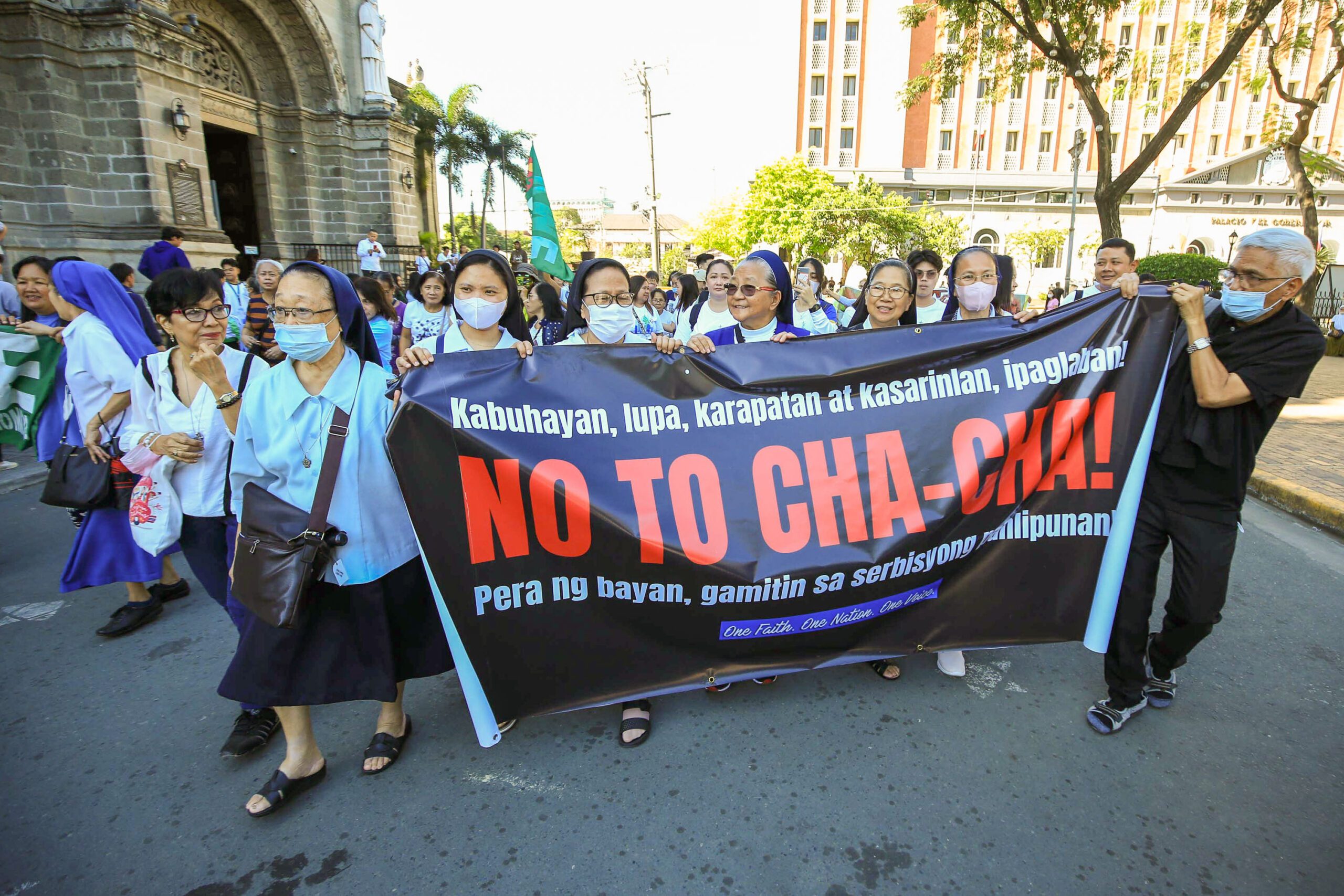
“I confess to Almighty God, and to you my brothers and sisters, that I have greatly sinned….”
The words of the Confiteor, a prayer at the beginning of Mass to seek the forgiveness of sins, rang out as from a chorus of angels, at the intersection of EDSA and White Plains in Quezon City.
Sister Cho Borromeo, now 80 years old, remembered uttering this penitential prayer – while kneeling and crying along with other protesters, among them nuns, priests, and seminarians – on one of those evenings between February 22 and 25, 1986.
They had been staking out along Metro Manila’s main highway, EDSA, sleeping on the road with only newspapers and malongs (traditional and colorful handwoven cloths) as their sheets.
Like millions of Filipinos, Borromeo and other church workers heeded the call of Manila Archbishop Jaime Cardinal Sin to flock to EDSA to protect rebel soldiers against dictator Ferdinand E. Marcos. The four-day gathering at EDSA would turn out to be the People Power Revolution, a bloodless uprising whose 38th anniversary was celebrated on Sunday, February 25.
In their tensest moment during the EDSA revolt, Borromeo remembered seeing military choppers hovering above them, even as they offered food and flowers to soldiers.
Borromeo believed Marcos knew “he was losing the revolution on the ground,” and “must have directed the soldiers to attack us from above.”
“Mga kababayan, katapusan na natin! Eto na (My countrymen, this is now our end! Here we go),” the protest’s youth leaders declared, as they saw the choppers coming.

The protesters knelt and prayed the Confiteor while a number of priests offered to hear confessions of sin. A general absolution, which takes the place of individual confession “when there is imminent danger of death,” was also given.
When the helicopters appeared to come much closer, the protesters started singing the Philippine National Anthem, “Lupang Hinirang,” which normally lasts around a minute. But even this they had to rush.
“Sabi nila, ‘Ayan na, ang lapit-lapit na, hindi natin matatapos! Ang kakantahin na lang natin, ‘Ang mamatay nang dahil sa ‘yo,’” Borromeo recalled. (They said, “There they are, they are so near, we can no longer finish it! We can only sing, “Ang mamatay nang dahil sa ‘yo.”)
“Aming ligaya na ‘pag may mang-aapi / ang mamatay nang dahil sa ‘yo” is the last line of the Philippine National Anthem. In the English translation by Camilo Osias and M.A.L. Lane, it is translated as: “But it is glory ever, when thou art wronged, For us, thy sons, to suffer and die.”
Filipinos, in other words, were ready to die as martyrs.
“We were crying because the end is near. So we all knelt and waited to be bombed,” Borromeo told Rappler. “And to our surprise, the helicopter just passed over.”
In what she describes now as a “funny scenario,” Borromeo said the protesters ended up turning about. They ran after the helicopters that they initially thought were angels of death. “We were wondering, where are they going?”
“Then we saw the helicopters going down, down, down, until they landed in Camp Aguinaldo. And when they landed in Camp Aguinaldo, the soldiers in the helicopter came out with rifles – and with yellow ribbons at the end of the rifles. So we knew, they had defected to the side of the people,” Borromeo said.
‘An act of God’
There was a flood of tears, Borromeo recounted. “We hugged the soldiers. And the soldiers were crying like little boys.”
“And typical of Filipinos,” she added, “siyempre may picture-taking (of course there was picture-taking).”
Borromeo said she turns emotional whenever she recalls those days, which “will forever be seared in my consciousness.”
That is why, Borromeo said, she is “agitated” at efforts “to minimize or to revise the value of EDSA.” She said in a mix of English and Filipino, “Those who do the revising, they were not even alive at that time. How dare they? What are their facts?”
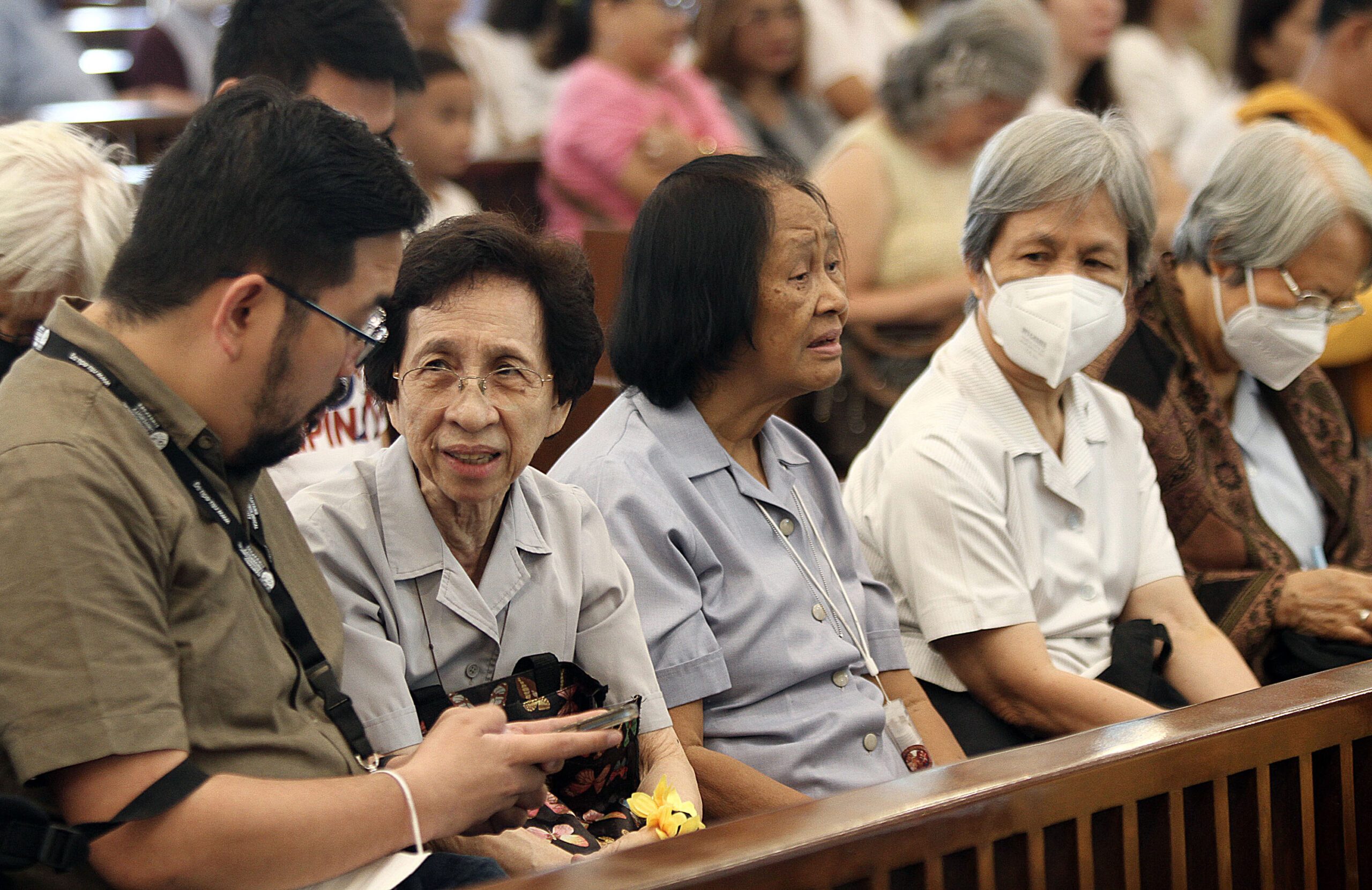
EDSA, she added, was nothing short of a miracle.
“EDSA was an act of God,” Borromeo said, citing Jesuit priest Father Manoling Francisco, who said Mass at the EDSA Shrine on Friday, February 23, to mark the 38th anniversary of People Power.
“I dare say that. EDSA was an act of God,” she repeated for emphasis. “EDSA showed the Filipinos at their finest. It is a defining moment.”
“And anyone who dishonors EDSA, dishonors God,” said the nun. “As simple as that.”
Sin gone, Marcos back
For church workers like Borromeo, EDSA was the perfect example of how faith can change the course of a nation’s politics.
People Power, for sure, was the culmination of more than a decade of activism by Filipinos from all walks of life – not only the Catholic Church but also other religious groups, opposition leaders, activist students, and the Left.
The literal voice that called Filipinos to EDSA, however, was Cardinal Sin appealing to Filipinos on church-run Radio Veritas to protect soldiers who had defected from Marcos.

Filipinos praying the rosary, singing church hymns, bearing the crucifix, and carrying images of the Blessed Virgin Mary – such as the iconic image of Our Lady of Fatima, which is now housed and canonically crowned in a Valenzuela shrine – are constant images of this peaceful revolt that reverberated across the globe.
For at least a decade-and-a-half after EDSA, the use of prayer as protest remained a powerful weapon against sitting presidents: in 1997, when Cardinal Sin and former president Corazon Aquino led a Luneta prayer rally against charter change under Fidel V. Ramos, and in 2001, when Sin and Aquino were also at the forefront of the so-called People Power II that ousted Joseph Estrada.
But the political landscape, 38 years after EDSA, is now more complicated. The biggest change since then: the dictator’s son and namesake, Ferdinand Marcos Jr., is now president – and, according to Rappler’s latest research, at least 16 officials related to the once-exiled Marcos family are deeply entrenched in government.
The Philippine Catholic Church itself has vastly changed. Since Cardinal Sin stepped down in 2003 and died of renal failure in 2005, the Catholic Church is still searching for ways to engage in the political scene in the absence of a single, powerful leader who could confront the powers that be.
While many in the church have consistently issued reminders to stop looking for another Cardinal Sin (he was a unique individual who played a unique role in history, they would say), the late Manila archbishop still lurks in the Filipino subconscious as a template of church involvement in politics.
As Jesus said in the Gospel of Matthew, however, “People do not put new wine into old wineskins. Otherwise the skins burst, the wine spills out, and the skins are ruined.”
And so it happened at key turning points over the past decade.
A defeat under Aquino’s son
On December 21, 2012, the Catholic Church suffered a momentous defeat after President Benigno “Noynoy” Aquino III – son of the country’s first woman president, Corazon Aquino, whom the Catholic Church helped bring to power after toppling Marcos – signed the Reproductive Health (RH) law.
The RH law, which mandates wider access to contraceptives especially for poor families, was staunchly opposed by the Catholic Church. Bishops even campaigned against Aquino and his allies on their pro-life issue – with the Diocese of Bacolod putting up tarpaulins in support of “Team Buhay” (Team Life) and in opposition to “Team Patay” (Team Death) candidates.
That Mrs. Aquino herself was a devout Catholic was not lost on Mr. Aquino’s critics, but despite his ties to Catholic leaders like Manila Archbishop Luis Antonio Tagle and Lingayen-Dagupan Archbishop Socrates Villegas, there was no stopping Noynoy Aquino who was enjoying high approval ratings at that time.
Father Eric Marcelo Genilo, a Jesuit professor of moral theology, pointed out the defeat of the Catholic Bishops’ Conference of the Philippines (CBCP) in the RH debate, in his paper, “Illusions of Influence: Clerical Partisan Engagement during the 2022 Elections.”
“Since the CBCP’s defeat in the battle over the Reproductive Health bill, politicians have learned to ignore negative clerical campaigns against their candidacy,” Genilo wrote.
“Using populist appeals and relying on the dissatisfaction of Filipinos against clerical interference in politics, politicians can now win elections even with opposition from church leaders. The hierarchy has effectively lost its prophetic voice in elections because of its misuse of political influence,” he added.
On priests for Robredo
The latest “slap in the face” for the Catholic hierarchy, in the words of Boac Bishop Marcelino Maralit, was the defeat of former vice president Leni Robredo in the 2022 presidential election.

Not only did Marcos win this election, he also became the country’s first majority president since his father was ousted on February 25, 1986. Marcos won with over 31 million votes or 58.77% of the votes – a referendum not only on the EDSA forces, which largely supported Robredo, but also on the Catholic Church that campaigned for her in explicit or implicit ways.
Religious endorsement in the 2022 elections was the subject of intense debates within the Catholic Church – which, during the Duterte administration, was also divided over condemnation of the drug war killings. Many Catholic bishops and priests, after all, especially in Mindanao, were Duterte supporters.
Vincentian priest Father Daniel Franklin Pilario, a critic of drug war killings and a theologian whose field of research includes liberation theology, addressed the question of religious endorsements in his 2022 paper, “Can Priests and Religious Endorse Political Candidates?
Pilario, now president of Adamson University, explained that “the classical answer is ‘no’” as repeatedly stated in church documents. This is because a priest (and, by extension, a consecrated person) is supposed to serve as “the center of unity.” Based on this school of thought, a church leader needs to stay neutral to keep his or her “authority to pass moral judgment on the political realm.”
Pilario said Jesus, however, also took “a non-neutral and partisan position” at times, such as when he “unmasked the hypocrisy of the Jewish leaders or whipped the money changers out of the temple.” It is also like Jesus “to fight for justice and work for the liberation of the poor.”
“The clergy and religious can take partisan position when the common good demands it, when justice is grossly violated, when the good of the Church requires it or when the Gospel values are at stake,” wrote Pilario.
The key, according to him, is for church leaders to clearly state their criteria for discernment based on Christian values.
“At this historical juncture, for instance – graft and corruption during Martial Law (‘Thou shall not steal’), the promotion of extrajudicial killings (‘Thou shall not kill’), and complicity with and/or silence about them – are nonnegotiable criteria for such a decision,” the Vincentian priest said in this paper published before the 2022 elections.
Pilario stressed that “no Christian can remain neutral in front of victimization and abuse of power” and that “as prophet, the Christian shall always take the side of the victim.”
One of those who supported Robredo was Borromeo.
When asked how she feels that Marcos won the 2022 presidential race, Borromeo responded by describing their support for Robredo.
“Of course, we went all out for Leni,” Borromeo told Rappler.
In a paper published after the presidential elections, however, Genilo argued that “public partisan political activity of some priests and bishops” in 2022 “was contrary to the proper role of clergy in politics and undermined the Church‘s moral credibility and pastoral mission.”
The Jesuit moral theologian explained: “If an endorsed candidate loses, the Church’s moral credibility and voice in politics is diminished. The election loss of the endorsed candidate can be interpreted as a repudiation of the church leadership’s inappropriate partisan political interventions, and it is like a slap on the face of the Church.”
“If an endorsed candidate wins, the Church’s pastoral and religious mission can also be compromised. The clergy will be encouraged to continue their partisan activity in future elections. This will foster political clericalism that gives priests and bishops the illusion of being political power players in the country,” he said.
In particular, Genilo said that “candidates who win because of the Church’s support may feel indebted to church leaders and grant Catholics special favors not given to other groups.” Eventually, prelates “may start pressuring the government to pass laws that enshrine Catholic moral teachings to create a theocratic society.”

For Genilo, it was also “rash” to think that the clergy can participate in partisan politics “because of the urgency of preventing a Marcos presidency. This argument draws from the flawed principle that ‘the ends justify the means.’ This is a principle that the Church has constantly rejected,” the moral theologian said.
“The call of Vatican II for the Church to read the signs of the times should remind the clergy that the Spirit also speaks to God’s people and that the clergy do not have a monopoly of wisdom,” he said.
‘Each of us can be a Cardinal Sin’
Whether it was right or wrong for the Catholic Church to endorse Robredo and oppose Marcos, the majority vote for Marcos showed that either people did not listen hard enough to Catholic leaders who campaigned against the dictator’s son, or the Church’s voice was drowned out by the sophisticated and well-oiled disinformation machinery of the Marcoses.
“What happened to our voice? Is it because we’re not that credible anymore?” asked Bishop Maralit in a Manila Times report.
One factor was how former president Rodrigo Duterte sought to demolish the credibility of the Catholic Church, one of the strongest critics of his war on drugs, along with the opposition and the media. Duterte, at one point, even threatened to kill Catholic bishops who are into drugs.
Another factor is Mass attendance: From 64% in 1991, the percentage of Filipinos who go to Mass weekly has gone down to 38% as of December 2022, according to polling firm Social Weather Stations.
Chel Diokno, who ran but lost under Robredo’s Senate slate, refused to make the same conclusions that Catholics no longer listen to their church, based on election results.
“I’m not sure that that can be a scientific measure of whether people are listening or not,” said Diokno, who identifies as Catholic, in an interview with Rappler on Friday.
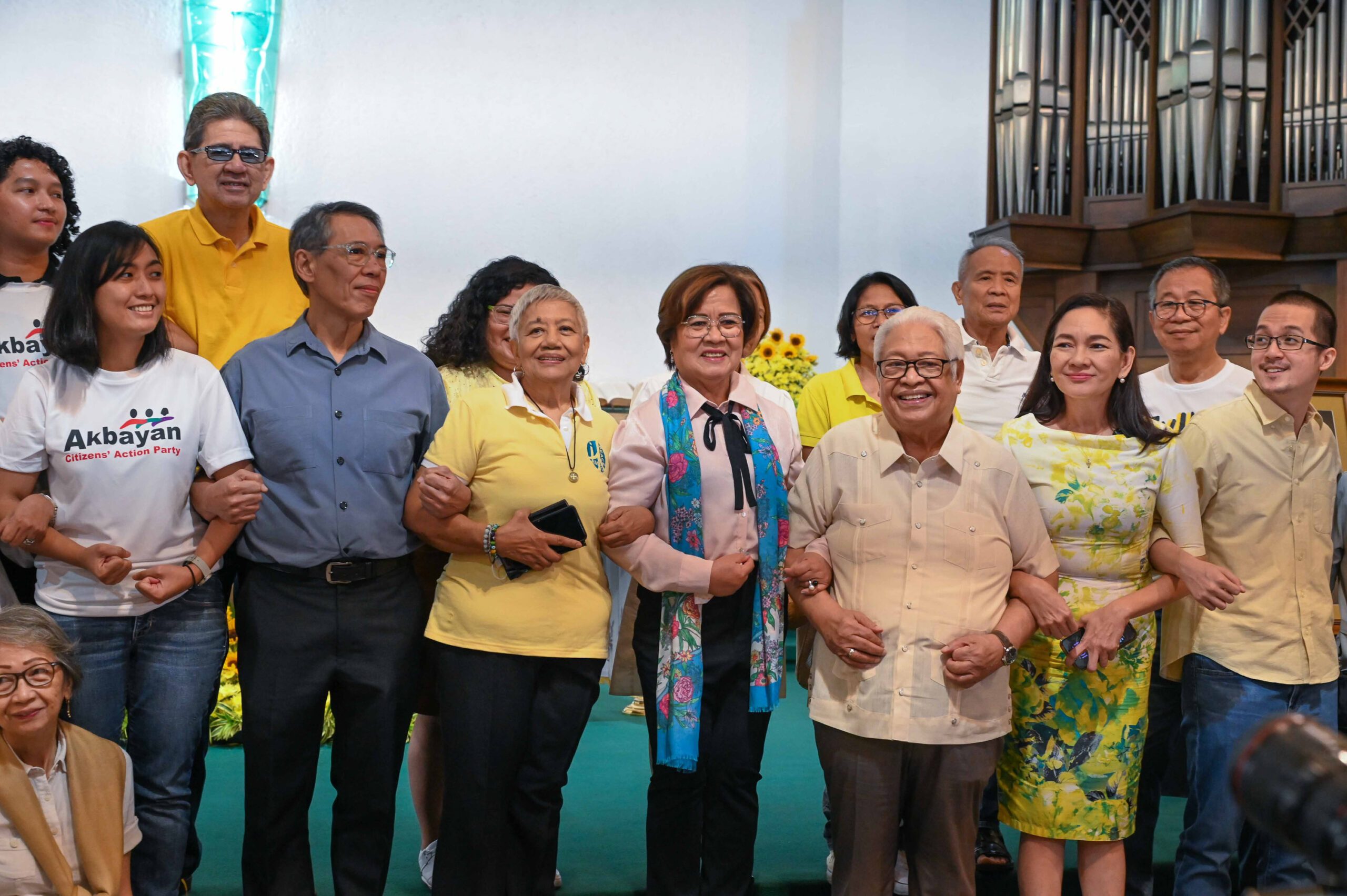
Diokno said it is better to look at the kind of support and the “spirit of volunteerism” that the opposition received in 2022. “I think that really captured the spirit of EDSA,” he said.
Diokno is the son of the late nationalist Jose W. Diokno, who was imprisoned in the 1970s for opposing the Marcos regime. His father was known to have drawn much inspiration from his Christian faith.
“I think the Church still has a crucial role as being sort of the conscience of the country,” Diokno said, noting that this was also the role of the Catholic Church during the Marcos dictatorship.
When asked if the Philippines needs another Cardinal Sin, Diokno responded: “I think that each of us can be a Cardinal Sin. Each of us can stand up for what is right and be a beacon, really, of hope and of light for everyone else.”
A new battle
Borromeo, the 80-year-old nun who “knelt and waited to be bombed” at EDSA, vowed to continue the fight despite the revisionism that made Marcos win.
She also addressed criticism of the Catholic Church’s constant involvement in politics.
“Who is the Church?” Borromeo asked in a mix of English and Filipino. “The members of the Church are Filipinos.”
“Every Filipino has every right to participate in the life of the country. To keep silent as fence-sitters or as bystandars, these are acts of complicity to crime,” she said.
“The Church cannot be allies of fake news. The Church cannot be allies of revision of history. The Church cannot be allies of those who dishonor God,” she said. “We are Filipinos. And we will always stand for the good of the Filipino people.”
When asked what she views as the way forward for the Philippines, Borromeo said that if she is to follow her human perspective, “there is no hope.”
“But if I were to look at what is happening with the lens of faith, I still believe in the light at the end of the tunnel,” Borromeo said. “Because if I will allow myself to be overcome by hopelessness, then I am invalidating the resurrection of Christ.”
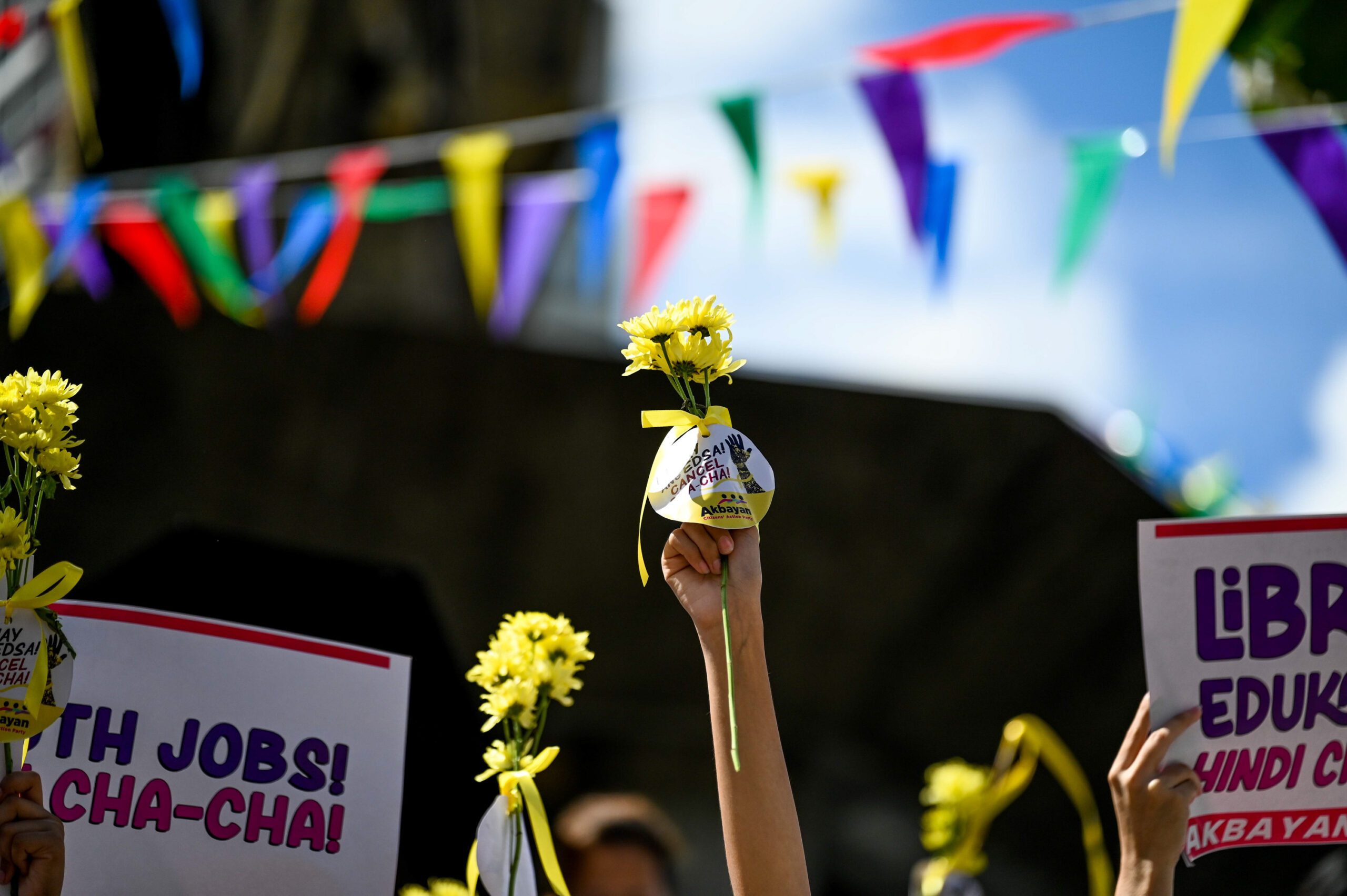
What will work for the Catholic Church is that, while it may be weaker 38 years after EDSA, the second Marcos is not any stronger. In terms of political acumen, observers note he is nowhere near his father, the dictator. The President’s critics – led by his predecessor, Rodrigo Duterte – have constantly derided him as a weak leader controlled by friends and family members behind the scenes.
His allies, said to be led by his cousin House Speaker Martin Romualdez, are now working to revise the 1987 Constitution that was a fruit of the 1986 revolt. But Marcos is facing a host of other problems, most especially his fractured alliance with Vice President Sara Duterte, whose father is himself opposing charter change.
The Catholic Church is now set for another pushback, a battle against charter change or Cha-Cha that Cardinal Sin and Corazon Aquino had won a decade after EDSA.
While the battle against charter change is not a definitive measure of the Church’s strength at this time – public clamor for Cha-Cha, after all, is weak – it will signal to its flock if it will take a new path.
It is a long, bumpy ride to a new kind of EDSA. – Rappler.com
Add a comment
How does this make you feel?

![[Bodymind] Forgiveness, Enrile, and Bongbong Marcos Jr.](https://www.rappler.com/tachyon/2024/03/forgiveness-enrile-bongbong-march-6-2024.jpg?resize=257%2C257&crop=411px%2C0px%2C1080px%2C1080px)
![[Vantage Point] Father and daughter caught in a vise of geopolitics](https://www.rappler.com/tachyon/2024/03/tl-father-daughter-geopolitics.jpg?resize=257%2C257&crop_strategy=attention)
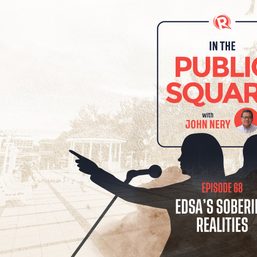
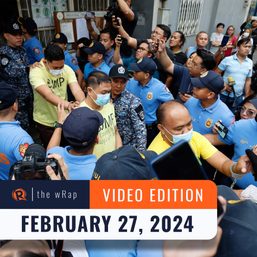
![[Vantage Point] Beware of false prophets: A cautionary examination](https://www.rappler.com/tachyon/2024/03/tl-false-prophet.jpg?resize=257%2C257&crop_strategy=attention)
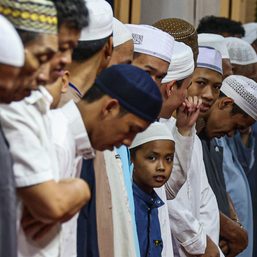
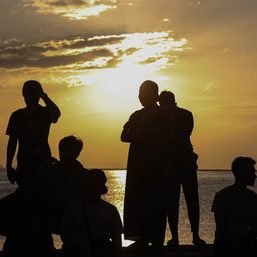
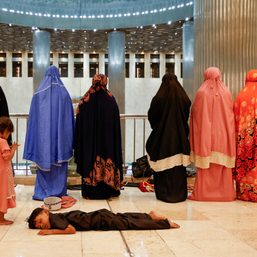
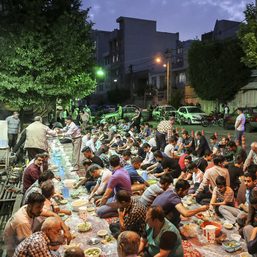
There are no comments yet. Add your comment to start the conversation.